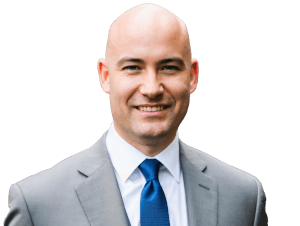If you suspect your loved one has been a victim of isolation, you should act as soon as possible to protect your loved one from further harm and ensure their rights are respected. Report the abuse to a local ombudsman, or to Georgia Healthcare Facility Regulation: the organization which oversees nursing home regulation in Georgia. After reporting the abuse, consider contacting a lawyer for a consultation in order to find out how to best represent your loved one’s interests and protect their legal rights.
When reporting the abuse or consulting with one of our Georgia nursing home isolation of resident lawyers, be specific, and explain why you suspect your loved one is a victim of isolation. You may also want to ask your loved one about it so you have all the information, and discuss the situation with them as appropriate.
Depending on the circumstances, you may find it necessary to move your loved one to a different nursing home where they will receive better care. Whatever you decide, make sure to respect your loved one’s wishes and do what is best for them.
Signs that a Resident is Being Isolated
Isolation of nursing home residents constitutes neglect, and sometimes abuse, on the part of the nursing home or caregiver. Isolation occurs when a resident is kept separate from other residents in a nursing home and kept away from social areas where other residents may gather for activities or meals.
Isolation can refer to being confined or restricted to a certain room or area, or it can refer to being denied the opportunity to interact and communicate with others. An isolated resident may be left continually alone or continually apart from others, perhaps with the exception of a caregiver. They may be forced to stay away from others and not speak to them. The nursing home may not allow the resident to communicate with others, and may cut them off from using the phone or sending and receiving mail.
Keeping a resident isolated makes it easier for a caregiver to control and abuse them, and social isolation often leads to depression, dementia, and other mental health issues. In some cases, severe isolation can even damage a resident’s physical health and contribute to a lower life expectancy.
For a free legal consultation with a nursing home isolation lawyer serving Georgia, call

Prevent Resident Isolation in Nursing Homes
To prevent isolation, a nursing home should make sure residents have plenty of opportunities to interact and communicate with others. Caregivers should inform residents of any social activities taking place at the nursing home and make sure residents are able to attend if they wish.
Nursing homes should also maintain enough staff members, as understaffing sometimes contributes to resident isolation. Supervisors should check in on residents to ensure their needs are met, and keep an eye on caregivers to prevent abuse and neglect of residents.
Nursing homes should allow residents to communicate with their friends and family and receive visits at the nursing home on a regular basis, and should give residents the option to leave their rooms when possible, providing wheelchairs or walkers if needed, to make sure the resident has opportunities for mobility and social interaction.
In a few rare cases, separation from other residents may be necessary. These include medical emergencies, contagious illness, and safety concerns. For example, a resident may be separated from others for a brief period of time if a conflict has occurred and staff need to isolate the resident in order to manage the situation.
Georgia Nursing Home Isolation Lawyer Near Me (678) 823-7678
Causes of Nursing Home Resident Isolation
Often, isolation of residents occurs in nursing homes that are understaffed. When there are too few staff members to properly care for residents, residents may become neglected. This can also happen when caregivers are undertrained or unqualified to care for residents.
In some cases, nursing homes may isolate residents in order to discipline them or make caring for them more convenient. This happens more often to residents with conditions like dementia or Alzheimer’s, who may need a higher level of care than other residents.
Residents who suffer from limited mobility or disabilities that affect their hearing or speech are more prone to isolation, as they may struggle to express themselves and interact with others. They may also feel reluctant or embarrassed to interact with others and attend social events.
In other cases, a caregiver may abuse a resident and isolate them to prevent the resident from speaking out about the abuse.
Except in cases of emergency or danger, nursing homes should never isolate residents and should do all they reasonably can to prevent residents from becoming isolated.

Call a Georgia Lawyer for Resident Isolation Claims
A nursing home can be held responsible for isolating a resident, because nursing homes have a legal duty to provide residents with certain rights and freedoms, as well as with a certain quality of life. Under these conditions, isolating a resident, keeping them apart from others, and cutting off their communication with friends and family members constitutes an illegal act, for which the nursing home is at fault. Unless isolation is necessary because of a medical emergency or safety hazard, a nursing home that isolates a resident violates the duty it owes to that resident.
Since isolation can cause mental, emotional, and physical pain and suffering, a nursing home that isolates its residents is required by law to compensate the resident financially for any pain and suffering caused by that isolation. Additionally, if the resident’s isolation resulted in any medical bills or other expenses, the nursing home may be required to cover the cost, since they are responsible for inflicting harm on the resident.
If your loved one has been a victim of isolation, you may want to consult a Georgia nursing home resident isolation lawyer to find out if the facility can be held responsible.




